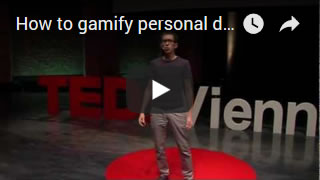Wolfie Christl is a public-interest technologist, researcher, writer, policy analyst, educator, and digital rights activist based in Vienna, Austria. Communication engineer by profession, he studied (but did not complete degrees in) computer science, sociology and media studies. He has been interested in the societal impact of information technology since the late 1990's. Until 2006, he was part of Public Netbase, a digital art platform, non-profit ISP and early hackerspace in Vienna. His recent work focuses on consumer surveillance, the economy of personal data, algorithmic decision-making, the power of tech platforms and the datafication of work.
He has published several comprehensive reports on today's personal data industry and contributed to investigations by civil society organizations, consumer protection associations, trade unions, media organizations, law firms and EU data protection authorities. His research has contributed to the filing of legal complaints against consumer data brokers and led to fines against unlawful data practices. It has been taken up by policymakers across the world, was quoted in reports to the European Commission and the US Federal Trade Commission, and helped to stimulate global debates about systemic data misuse for commercial purposes.
He also works as a trainer in workplace privacy, contributed to donottrack, an interactive web documentary about digital tracking, and occasionally writes for newspapers such as the FAZ and Politico. In 2013, he co-created Data Dealer, an award-winning educational game on personal data and surveillance. EDRi, the association of 45 European digital rights organizations, commended his work on consumer privacy in their 2016, 2017 and 2018 Annual Awards.
Wolfie Christl and his projects have been featured in the New York Times, Wall Street Journal, Washington Post, Financial Times, The Guardian and many other media outlets around the world. He has presented his research in the European Parliament and held many talks, lectures and workshops at conferences throughout Europe and the US, including at universities, federal ministries, re:publica and the Chaos Communications Congress. In 2019, he was a keynote speaker at the conference of the German federal government's Data Ethics Commission.
He provides regular commentary on his research and tech policy debates on Twitter. His tweets helped to initiate a US Congress investigation and got Microsoft to make global changes to one of its enterprise products.

